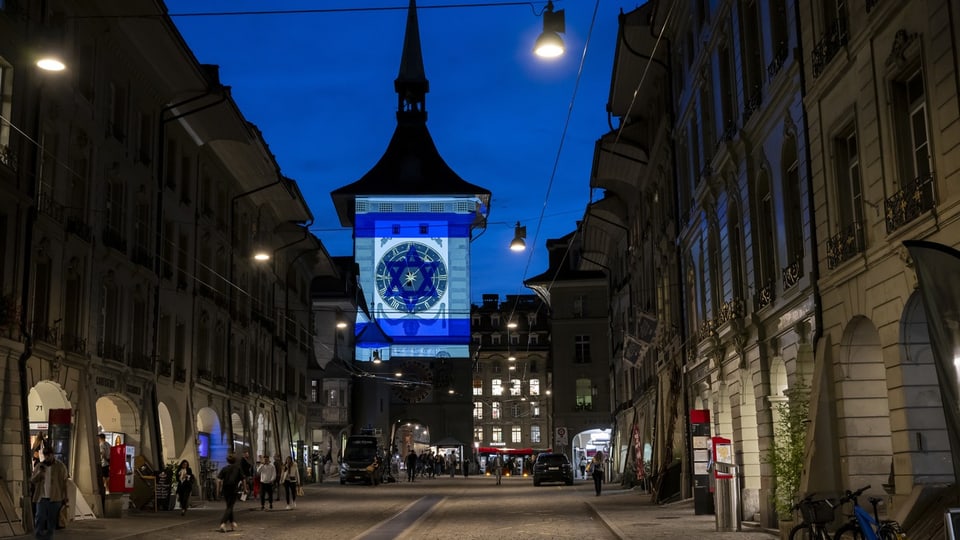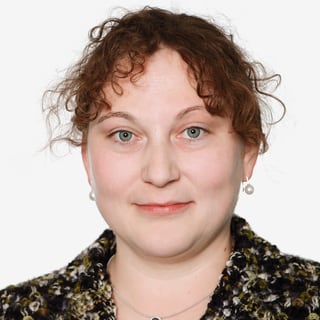The issue of the Middle East also divides society in Switzerland, as a dispute in the national umbrella organization for interreligious dialogue shows. The tension is also reflected between people of Arab origin and Jews. SRF religion editor Judith Wipfler classifies the facts.
SRF News: Do you see our interreligious peace at risk – for example due to this acute conflict in the interreligious working group?
Judith Wipfler: This conflict is a sign of how frayed the nerves are. The Jewish community in particular is currently extremely stressed. There have been over 100 anti-Semitic attacks here in Switzerland since the massacre in Israel a month ago.

Legend:
The Israeli flag is projected on the Bernese Zytglogge. (October 12, 2023)
Keystone/Peter Schneider
That’s scary. Events during the “Week of Religions” had to be canceled because Jewish speakers could not or did not want to come. Or, as in the liberal Jewish community in Basel, events were canceled due to security concerns. Everyone who is somehow connected to people in Israel is under constant stress.
Would it be easier if Rifat Lenzin had spoken out and distanced himself from Hamas violence?
Lenzin always condemned violence. She consciously never made any political statements about the Middle East. Lenzin worked for many years with Jews and Christians in the Zurich Lehrhaus. The Lehrhaus, now the Zurich Institute for Interreligious Dialogue, always deliberately excluded the topic of the Middle East and has had good experiences with it, in the sense of: We cannot solve the problem here between Israel and the Palestinians. I thought that was smart, because the Middle East issue is so polarizing that a reasonable dialogue about it is almost impossible.
On the other hand, there seems to be a general suspicion hovering over the Muslim communities in Switzerland that they are anti-Semitic. How do you see that?
The Muslim communities in Switzerland rightly complain about the Islamophobia they face. In some circles, solidarity with Israel has an anti-Arab and anti-Muslim reflex. These people often overlook the fact that the majority of Swiss Muslims live in good neighborhoods with Jewish colleagues and are not extremists anyway.
The large churches are also represented in the interreligious working group. How do they relate to this specific case?
There is also division in the churches themselves over the issue of the Middle East, specifically with whom one should now show solidarity or from whom one should distance oneself. Basically, the churches do a lot to mediate and also create spaces for dialogue. For example, last week there was an interreligious lamentation ceremony in the open church of St. Jakob in Zurich. Imam, rabbi and priest stood next to each other and mourned together.
The interview was conducted by Ivana Pribakovic.
